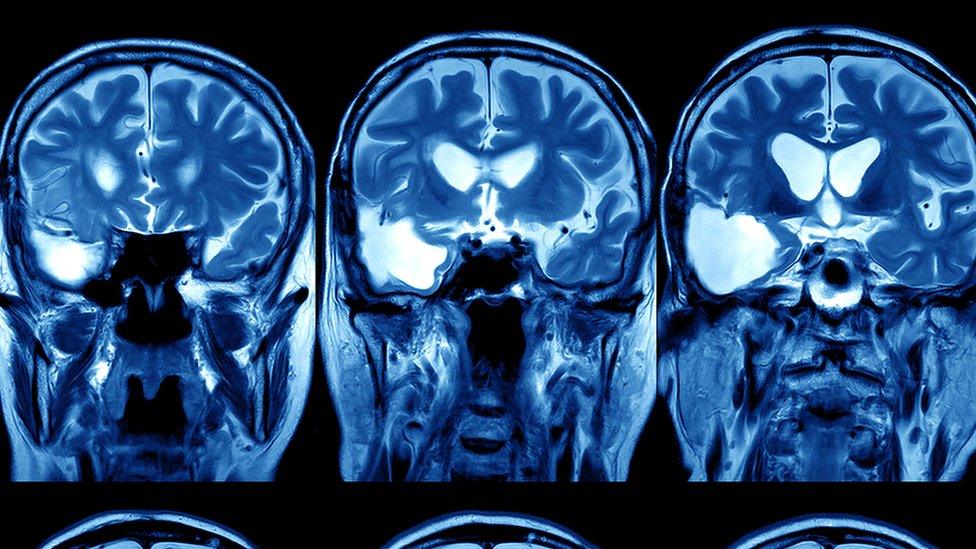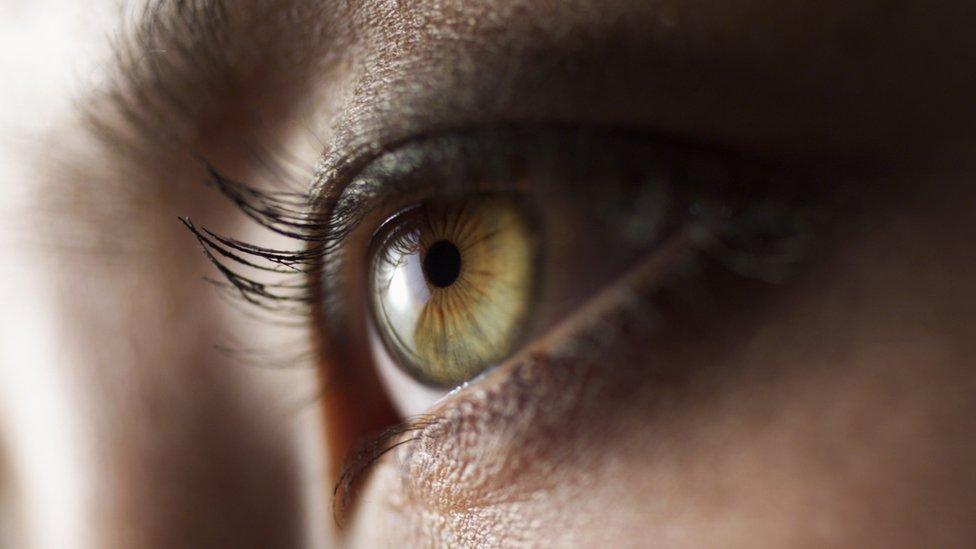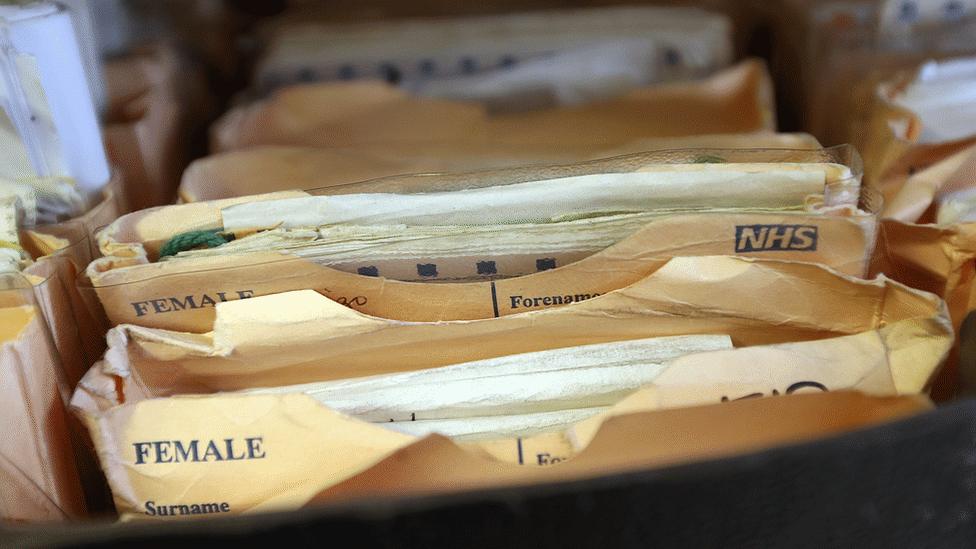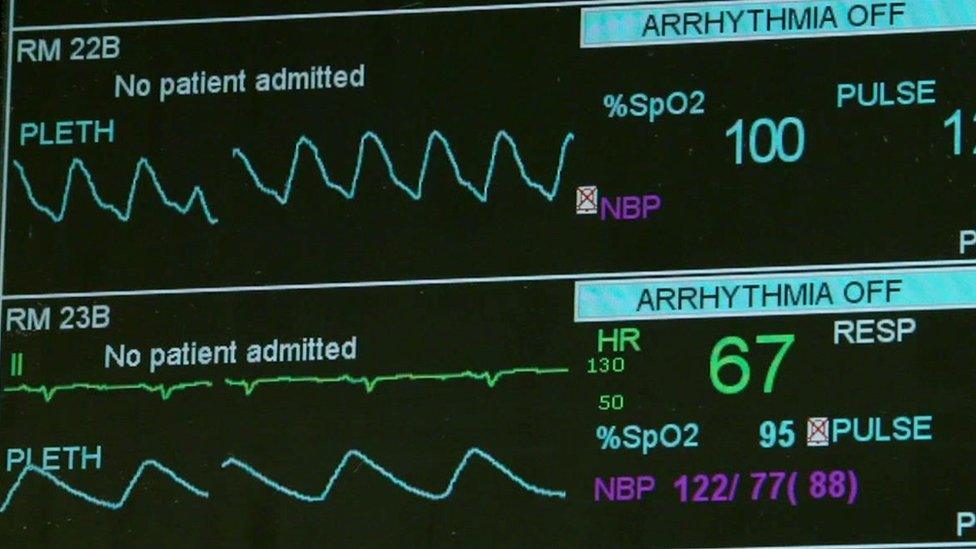Google DeepMind targets NHS head and neck cancer treatment
- Published

DeepMind will analyse anonymised scans from 700 former cancer patients
Anonymised CT and MRI scans from 700 former University College London Hospital radiotherapy patients will be analysed by Google's artificial intelligence division, DeepMind.
The aim is to develop an algorithm that can automatically differentiate between healthy and cancerous tissues.
This "segmentation" is necessary in patients with head and neck cancers.
And it is hoped the time it takes to design targeted radiotherapy treatments could be cut from four hours to one.
"Clinicians will remain responsible for deciding radiotherapy treatment plans," UCLH said, external.
Complex tumours
"From my perspective, one of the challenges that we have in the treatment of all tumours, but particularly brain and neck [tumours], is their complexity," said Dr Kieran Breen, of Brain Tumour Research, who is not involved in the work.
"One way we can really improve this is by using the knowledge we already have," he told the BBC.
"This is essentially what this project is doing."
More precise radiotherapy helps reduce side effects of such treatment, according to Dr Justine Alford, senior science information officer at Cancer Research UK.
"Using computers to help plan radiotherapy could help deliver better treatment for patients by speeding up the process and improving accuracy," she said.
"But we won't know until results from this innovative new project are produced."
The former patients have consented to their anonymised scans being used for medical research.
Ownership of the data will be retained by the hospital.
And, at the end of the partnership, DeepMind will "securely destroy" any information provided to it.
One in 75 men and one in 150 women will be diagnosed with oral cancer during their lifetime, according to Google.
- Published6 July 2016
- Published5 July 2016

- Published3 May 2016

- Published14 September 2015
